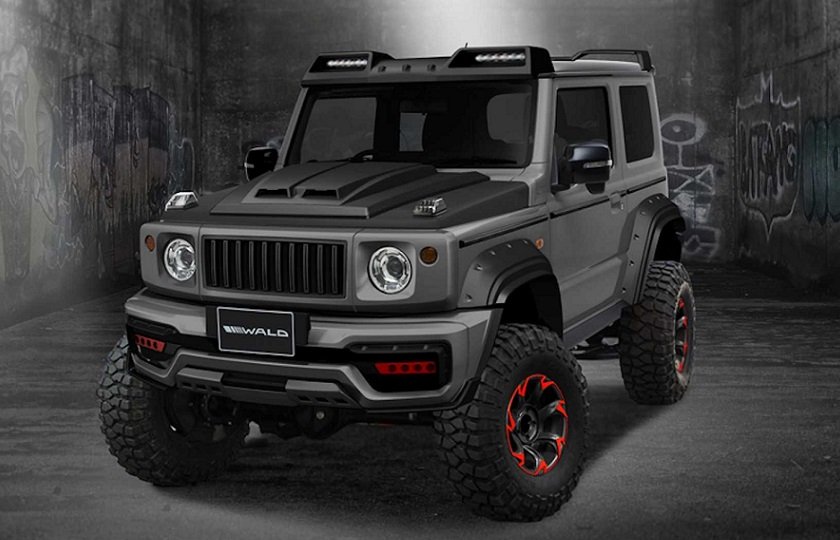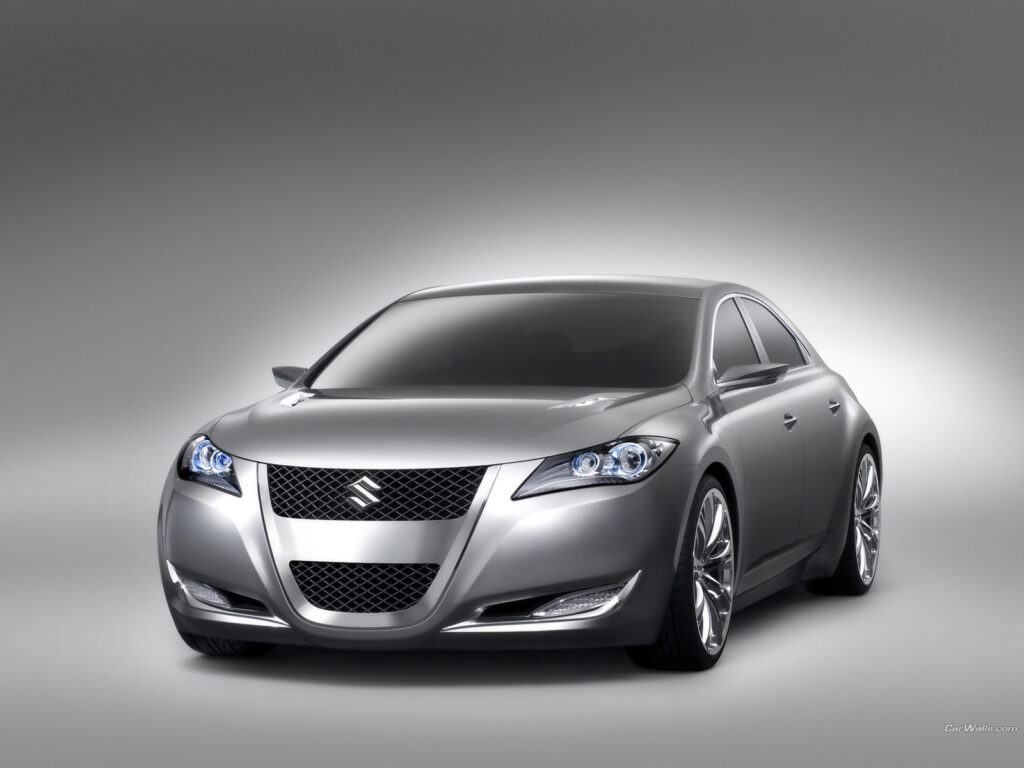Suzuki is a well-known Japanese automotive manufacturer that has a global presence and a reputation for producing reliable, economical, and compact cars. Suzuki’s history dates back to 1909 when it was founded as a loom manufacturing company by Michio Suzuki. However, it wasn’t until the 1930s that the company ventured into the automotive industry. Since then, Suzuki has become synonymous with small and efficient vehicles.
Suzuki’s car lineup covers a wide range of segments, from compact cars to SUVs, and the company is known for its dedication to creating vehicles that are both practical and affordable.
Let’s talk about the history of Suzuki
Here is an overview of the key milestones in the history of the suzuki company:
- Early Beginnings (1909-1930s):
- The Suzuki Loom Works: The company’s founder, Michio Suzuki, started as a loom manufacturing business in Hamamatsu, Japan, in 1909. They initially focused on producing weaving looms for the textile industry.
- Entry into the Automotive Industry (1930s):
- Diversification: In the 1930s, Suzuki recognized the potential in diversifying its business. This led to the development of its first motorized vehicle, a small car powered by a 4-horsepower engine, in 1937.
- World War II and Post-War Era (1940s-1950s):
- WWII Production: During World War II, Suzuki shifted its focus to manufacturing military items, including aircraft parts and weapons.
- Return to Cars: After the war, Suzuki refocused on manufacturing vehicles, launching the “Power Free” motorized bicycle in 1952. This was the precursor to the development of motorcycles.
- Suzuki Motor Co., Ltd. (1954):
- Official Formation: In 1954, Suzuki officially established the Suzuki Motor Co., Ltd., marking the company’s entry into the motorcycle market.
- Suzuki Diamond Free: The company’s first motorcycle, the “Suzuki Diamond Free,” was introduced, setting the stage for Suzuki’s future success in the motorcycle industry.
- Global Expansion (1960s-1970s):
- Exporting Motorcycles: Suzuki began exporting motorcycles to various countries in the 1960s, including the United States, where the brand quickly gained popularity.
- Introduction of Four-Wheel Vehicles: In 1968, Suzuki introduced its first compact car, the Suzuki Fronte, marking the company’s entry into the automobile market.
- Innovations and Off-Road Success (1980s-1990s):
- All-Terrain Vehicles: Suzuki gained recognition for its off-road and all-terrain vehicles, including the iconic Suzuki Samurai and Suzuki Jimny.
- Technological Advancements: Suzuki developed innovations such as the AllGrip four-wheel-drive system, which improved the performance of its vehicles in various conditions.
- Recent Developments (2000s-Present):
- Hybrid and Electric Vehicles: Suzuki introduced hybrid and electric vehicles to address environmental concerns and improve fuel efficiency.
- Global Presence: The company expanded its global presence with manufacturing facilities and sales operations in various countries.
- Collaborations: Suzuki entered into strategic partnerships and collaborations with other automotive companies, such as Toyota, to strengthen its position in the industry.
Suzuki’s history is marked by its ability to adapt and innovate, transitioning from a loom manufacturing company to a major player in the motorcycle and automotive industries. Today, Suzuki is known for its compact cars, motorcycles, and off-road vehicles, and it continues to be a respected brand in the automotive world.

Let’s know a little about the features of Suzuki
- Compact and Efficient: Suzuki cars are often praised for their compact size and excellent fuel efficiency. These features make them popular choices for urban commuters and those looking for economical transportation.
- Global Presence: Suzuki has a strong global presence, with manufacturing facilities and sales operations in many countries. This presence allows them to cater to a diverse range of markets and consumer preferences.
- Off-Road Expertise: Suzuki has a reputation for producing rugged and capable off-road vehicles. The Suzuki Jimny, for example, is a popular compact SUV known for its off-road prowess.
- Affordable Pricing: Suzuki cars are typically priced competitively, making them accessible to a broad range of consumers. This affordability is one of the brand’s major selling points.
- Reliability: Suzuki cars are known for their reliability and low cost of ownership. This reputation is built on years of producing vehicles that can withstand daily wear and tear.
- Innovation: Suzuki has a history of innovation in the automotive industry. They have developed technology such as the AllGrip four-wheel-drive system, which enhances the performance of their vehicles in various driving conditions.
- Eco-Friendly Options: Suzuki has also made efforts to produce more environmentally friendly vehicles. They have introduced hybrid and electric options in their lineup to reduce emissions and improve fuel efficiency.

In the following, we discuss some Suzuki models:
- Suzuki Swift:
- The Suzuki Swift is a compact hatchback known for its stylish design and agile handling. It’s available in various trim levels and engine options.
- The Swift is often praised for its fuel efficiency, making it an excellent choice for urban commuting.
- Suzuki Vitara:
- The Suzuki Vitara is a compact SUV with a sleek design and a comfortable interior. It’s available in both front-wheel-drive and all-wheel-drive configurations.
- The Vitara is a versatile option for those looking for a small SUV with off-road capabilities.
- Suzuki Jimny:
- The Suzuki Jimny is a compact SUV with a rugged and boxy design. It’s particularly renowned for its off-road capabilities and is a favorite among outdoor enthusiasts.
- The Jimny is known for its durability and ability to navigate challenging terrain.
- Suzuki SX4:
- The Suzuki SX4 is a small crossover that combines the practicality of a hatchback with some SUV characteristics. It’s offered in both front-wheel-drive and all-wheel-drive versions.
- The SX4 is known for its affordability and decent cargo space.
- Suzuki Celerio:
- The Suzuki Celerio is a subcompact hatchback known for its economical pricing and good fuel efficiency. It’s a practical choice for budget-conscious buyers.
- Suzuki S-Cross:
- The Suzuki S-Cross is a compact crossover SUV designed for families. It offers a spacious interior and a comfortable ride, making it suitable for longer trips.
- Suzuki Baleno:
- The Suzuki Baleno is a compact hatchback with a focus on providing a roomy interior and ample cargo space. It’s known for its straightforward design and practicality.
- Suzuki Ignis:
- The Suzuki Ignis is a small crossover with a distinctive and quirky design. It’s designed to be lightweight and fuel-efficient while offering a unique style.
- Suzuki Ertiga:
- The Suzuki Ertiga is a compact MPV (Multi-Purpose Vehicle) designed for families. It can seat up to seven passengers and offers a good balance of space and affordability.
- Suzuki Across (Hybrid):
- The Suzuki Across is a plug-in hybrid SUV that shares its platform with the Toyota RAV4. It offers a combination of electric and gasoline power for improved fuel efficiency.
Suzuki cars and the importance of the environment:
Suzuki, like many automotive manufacturers, has taken steps to address environmental concerns and promote sustainability. Here are some of the ways Suzuki has been involved in environmental initiatives:
- Efficient Engines and Technologies:
- Suzuki has developed and incorporated various technologies into its vehicles to improve fuel efficiency and reduce emissions. This includes the use of lightweight materials, efficient engines, and advanced transmissions.
- Hybrid and Electric Vehicles:
- Suzuki introduced hybrid and electric vehicles to its lineup to reduce the environmental impact of its cars. The Suzuki Swift Hybrid and Suzuki Across (a plug-in hybrid SUV) are examples of their efforts in this direction.
- Fuel Efficiency:
- Many of Suzuki’s smaller cars are known for their fuel efficiency, making them an eco-friendly choice for customers. This contributes to reducing the overall carbon footprint of the vehicles.
- Eco-Friendly Manufacturing:
- Suzuki has implemented environmentally conscious manufacturing practices in its production facilities. This includes using energy-efficient machinery and reducing waste and emissions.
- Recycling and Sustainability:
- Suzuki has focused on recycling and sustainability in the production of its vehicles. The company has made efforts to recycle and reuse materials whenever possible to minimize the environmental impact of the manufacturing process.
- Compliance with Emission Standards:
- Suzuki ensures that its vehicles meet or exceed emissions standards in various countries. This includes complying with regulations on exhaust emissions and pollutants.
- Corporate Social Responsibility (CSR):
- Suzuki has a CSR program that includes various initiatives related to environmental conservation, community engagement, and social responsibility. These efforts reflect the company’s commitment to making a positive impact on the environment and society.

Leave a Reply